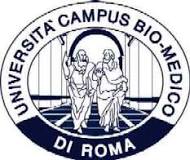BioHyst and Scienza per Amore at Campus Bio-Medico University of Rome – April 19 2013

On April 19, 2013, at the Campus Bio-Medico University, a conference was held on “Hyst Technology: Green Technology, Nutrition and International Cooperation.”
The event marked the beginning of a program of scientific and technological cooperation that starts from Italy to reach Africa and other countries in the developing world.
The meeting was attended by numerous diplomatic representatives of African countries: Mrs. Soukeyna Ka Loko, Minister Counselor of the Embassy of Benin; Mr. Beugre Joseph Roua, Economic Counselor of the Embassy of Ivory Coast, H.E. Abreha Aseffa, Minister Plenipotentiary of the Embassy of Ethiopia; Mrs. Malikopo Patricia Rakootje, First Secretary of the Embassy of Lesotho; Mr. Mohammed S.L. Sheriff, Minister Counselor of the Embassy of Liberia; Dr. Francesco Alicicco, Honorary Consul of Rwanda; Dr. Christian Alain Joseph Assogba, First Counselor of the Embassy of Senegal; H.E. Mohammed Seghairoon Elsheikh, Minister Plenipotentiary and Mrs. Abla Malik Osman Malik, Counselor of the Embassy of Sudan. Representatives of farming communities of Somalia were also present at the event.
Speakers at the conference included Prof. Laura De Gara, Coordinator of Study in Food Science and Human Nutrition and Prof. Diego Barba, Coordinator of Study in Chemical Engineering for Sustainable Development, both of the Campus Bio-Medico University of Rome, Prof. Giuliana Vinci, Sapienza University of Rome, Department of Management, Prof. Pier Paolo Dell’Omo, Sapienza University of Rome, Department of Astronautical Electrical and Energy Engineering; Dr. Francesca Luciani, Istituto Superiore di Sanità and Mr. Luca Urdich, Commercial Director of BioHyst and member of the Scienza per Amore Association.
The meeting was opened by Prof. De Gara who stressed that the Campus Bio-Medico University focuses its research interests on the needs of the person and the quality of life. She also highlighted that the issues addressed in the courses of study are in line with the solutions proposed by the BioHyst methodology, both for its effects and its multidisciplinary and integrated approach.
This was followed by the speech of Prof. Barba, who underlined that the principle of economic compensation must be at the base of a Territorial Model of Sustainable Development, which will enable the terrotorial area to self-sustain itself, thus combining ethical and economic aspects. Hyst technology responds perfectly to this principle.
Then Prof. Pier Paolo Dell’Omo introduced the Hyst technology, explaining the principles and fields of its application. In particular, he focused on the possibilities offered by the Hyst system in the field of second-generation biofuels, “the Hyst process improves by an order of magnitude the energy performance of the most advanced pre-treatment systems available today.” Prof. Dell’Omo concluded his speech highlighting how the joint use of agricultural residues for food and energy purposes is one of the fundamental features of the Hyst system.
Dr. Francesca Luciani then illustrated the nutritional characteristics of Hyst flour. “Malnutrition is as serious a problem as hunger” she said, and to drive home her point added that “Better access to vitamins and zinc would save more than 680,000 children a year.” Dr. Luciani explained how such a product is not only a food. In fact, according to the Ministry of Health, the high concentration of proteins, vitamins and minerals, make Hyst flour a natural dietary supplement. At the end of her speech she reiterated that Hyst flours made from cereal by-products can alleviate problems related to nutritional deficits in developing countries.
Prof. Giuliana Vinci continued by inserting Hyst in a wider perspective of sustainable development. She highlighted, in fact, how this technology can be the way to limit environmental impact both by making use of waste from the milling industry and by reducing energy consumption without using water and without producing CO2.
To close the meeting, Mr. Luca Urdich illustrated the humanitarian project Bits of Future: Food for All, which consists in providing Hyst facilities free of charge to developing countries for the processing of local agricultural waste. “Sustainability is achieved by placing at its center a broader vision of the human being, integrated in an environment of which one is consciously both a functional part and an evolutionary synthesis.”
Confirming the validity of Bits Future, the World Bank and the African Development Bank have expressed interest in this project and Hyst technology. In particular, the African Development Bank has invited a delegation of Scienza per Amore and BioHyst to present the project and the technology during a specially organized meeting. This meeting, titled “Hyst Technology to boost African Economy (Agriculture, Industry and Commerce),” will be held in Tunis in the main office of the bank on April 26 2013, and will be an opportunity to open a dialogue with its most important departments.